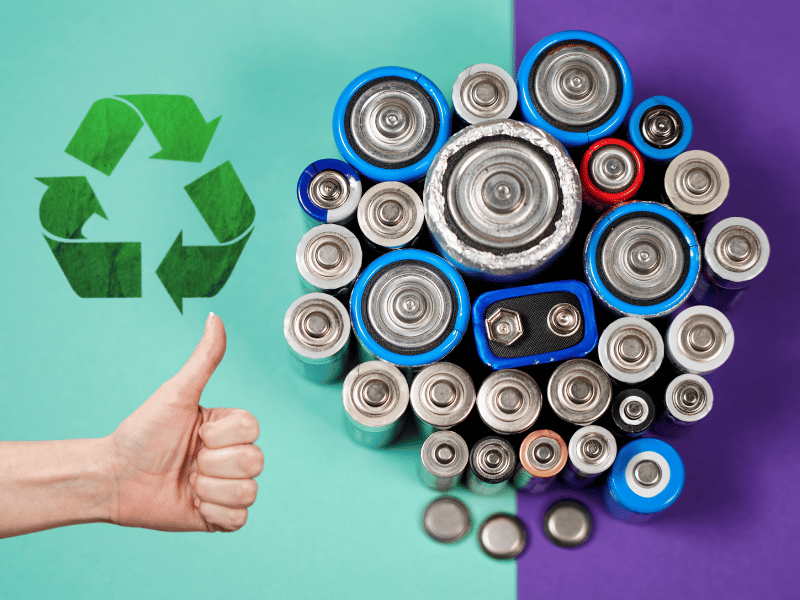
Introduction
Battery recycling is becoming increasingly important in today’s world due to the widespread use of batteries across various industries and households. It is crucial to understand the proper methods and processes for recycling batteries to prevent adverse environmental and health effects associated with improper disposal.
Historical Background
Battery development dates back to the late 18th century and has since become an indispensable part of our lives. However, improper battery disposal has had detrimental effects on the environment, including soil and water contamination, as well as the release of hazardous substances into the atmosphere.
Key Concepts and Definitions
Proper battery recycling involves the safe and responsible disposal of batteries at the end of their life cycle. This includes collection, sorting, treatment, and recovery of valuable materials. Understanding key terms such as hazardous materials, end-of-life batteries, and recycling processes is essential to fully grasp the importance of battery recycling.
Main Discussion Points
Environmental Benefits of Proper Battery Recycling
Proper battery recycling offers significant environmental benefits. Improperly disposed batteries release toxic substances into the environment, leading to pollution and contamination. Recycling batteries reduces these risks by keeping harmful elements out of ecosystems and preserving air and water quality.
Resource Conservation and Recovery
Battery recycling plays a vital role in conserving natural resources. Many batteries contain valuable materials like metals and rare earth elements, which can be recovered and reused in the production of new batteries or other applications. This reduces the need for mining and extraction, conserving finite resources. Additionally, the recovery of valuable materials from batteries has economic benefits as they can be sold or repurposed.
Health and Safety Considerations
Improper battery disposal poses health risks to humans and the environment. Batteries contain harmful chemicals that can leak and contaminate soil, water sources, and the air. Proper recycling protects human health, particularly for workers in the recycling industry. It also prevents battery leakage and fires, ensuring safety for individuals and the environment.
Case Studies or Examples
Real-world examples of successful battery recycling programs can inspire further action. Switzerland, for instance, has achieved a battery recycling rate of over 90% through its comprehensive recycling system. These case studies demonstrate the positive outcomes of proper battery recycling, encouraging other regions to follow suit.
Current Trends or Developments
Advancements in battery recycling technologies and processes are constantly evolving. Researchers and innovators are exploring innovative approaches to improve efficiency and maximize resource recovery. There is also a growing global awareness of the importance of battery recycling, leading to increased adoption of responsible practices driven by environmental concerns and regulatory measures.
Challenges or Controversies
Battery recycling faces challenges and controversies. The complex nature of battery composition, which varies across different types and brands, makes it challenging to develop standardized recycling processes. Additionally, debates exist regarding the economic feasibility of battery recycling and the concept of extended producer responsibility.
Future Outlook
The future of battery recycling holds promising implications. Technological innovations and policy changes can revolutionize the industry and significantly improve recycling rates. Advanced recycling technologies, such as hydrometallurgical processes, can enhance resource recovery and reduce environmental impacts. Policy interventions focusing on extended producer responsibility can incentivize manufacturers to design recyclable batteries, leading to higher recycling rates.
Conclusion
Proper battery recycling is a crucial step towards environmental sustainability. It offers environmental, economic, and health benefits by reducing pollution, conserving resources, and protecting human well-being. With the increasing adoption of responsible practices and advancements in recycling technologies, the future of battery recycling looks promising. Active support and participation from individuals, businesses, and governments are imperative to create a cleaner and healthier future.
References:
- Environmental Protection Agency. (2021, April 22). Batteries. Retrieved from https://www.epa.gov/recycle/batteries
- European Commission. (2020, March 18). Batteries in the EU. Retrieved from https://ec.europa.eu/environment/topics/waste-and-recycling/batteries_en
- Swiss Recycling. (n.d.). Battery Recycling. Retrieved from https://www.swiss-recycling.ch/en/battery-recycling/